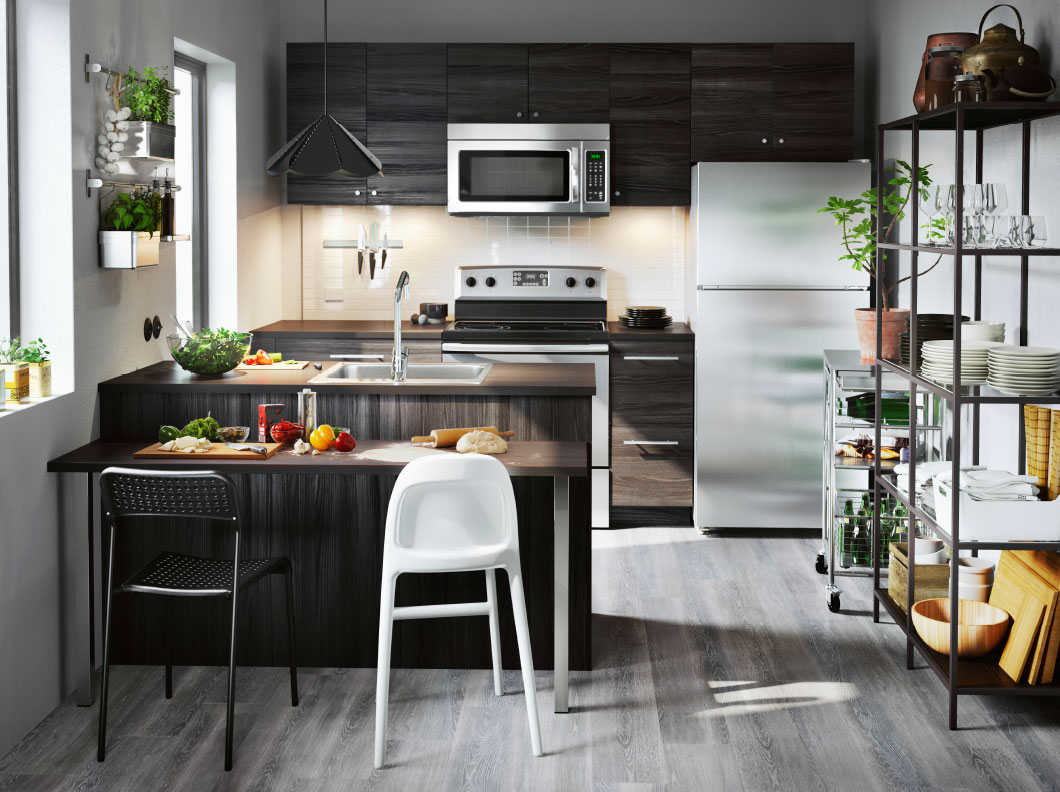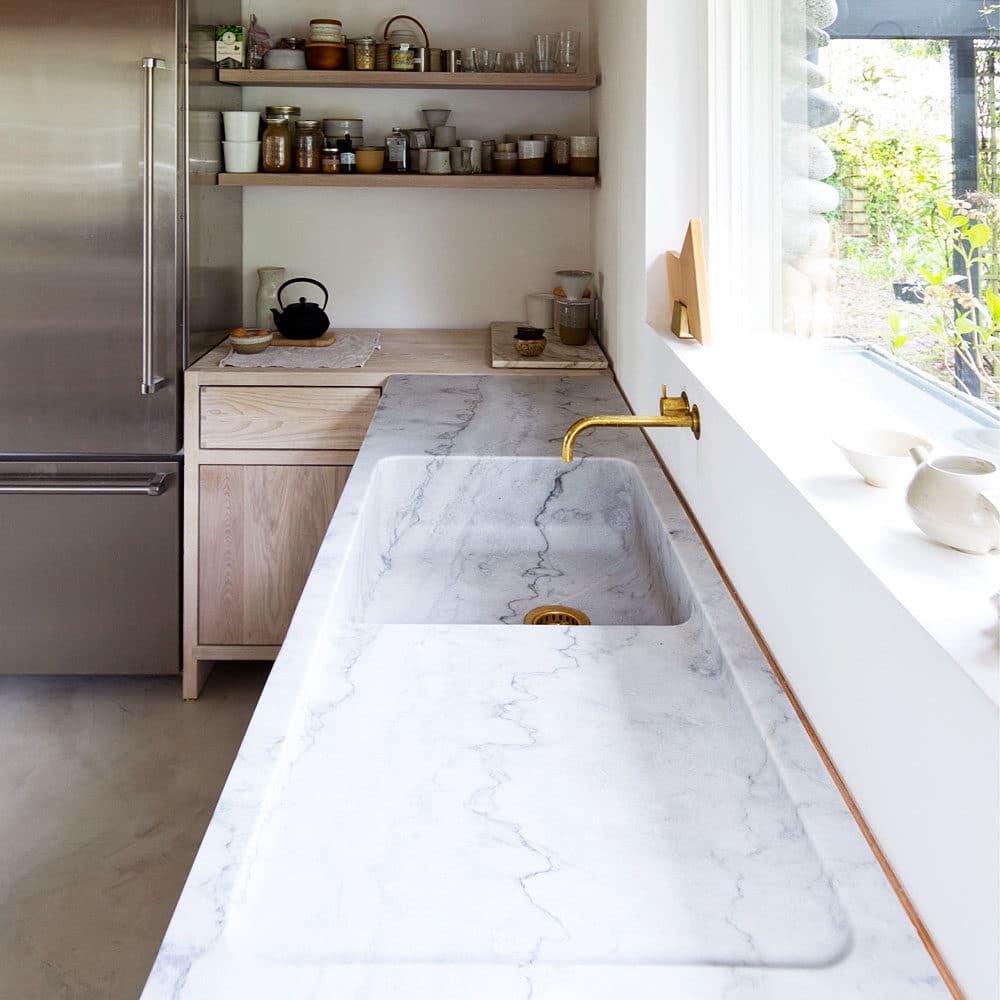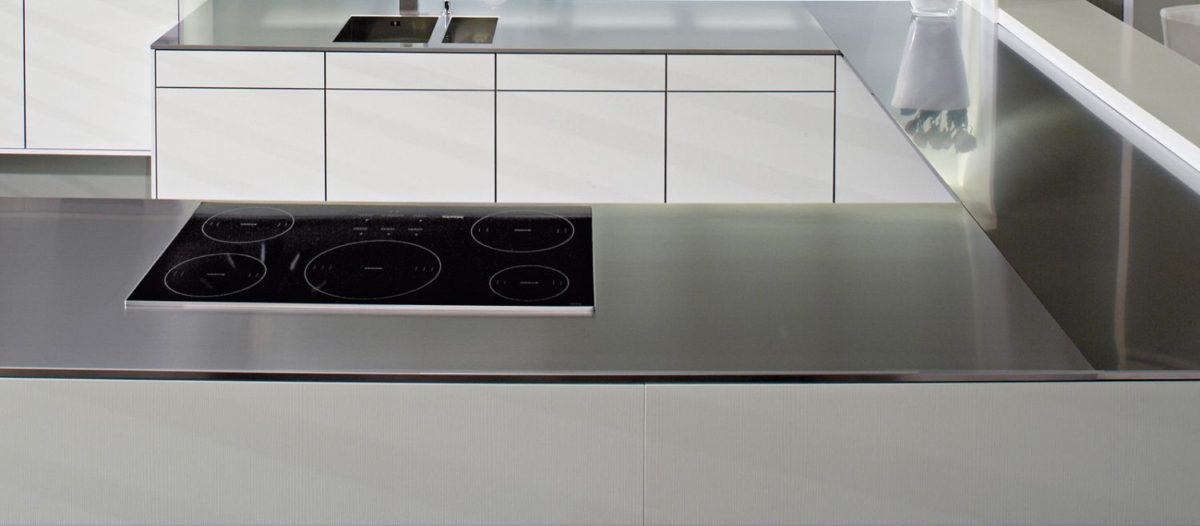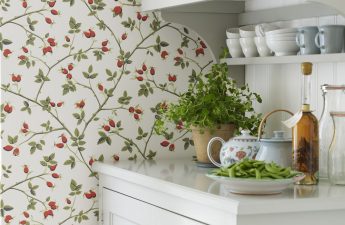When choosing a material for a kitchen countertopIt is worth paying attention not only to the price and external characteristics, but also to think about how much effort will be required to care for it. Today we will talk about this
Today kitchen manufacturers offerthe widest choice of materials for countertops and work surfaces. Most often, our choice in favor of one or another material is determined by personal preferences and considerations about the combination of the countertop with the kitchen facades and the main background.
However, as a result, we often encounterthe problem of excessive sensitivity or, conversely, insensitivity of the new countertop to cleaning agents, and having made a couple of mistakes, we regret our choice. To make this feeling visit you as rarely as possible, we have compiled a collection of tips on caring for different types of countertops. Perhaps, after reading it, you will be able to make the right decision.
Quite a popular marble - surprisinglysensitive material: it is highly undesirable to spill lemon juice, alcohol or even tomato sauce on it. The acid enters into a chemical reaction with the porous surface of the stone and corrodes the calcium, which is why the surface of the countertop may become dull, and stains will be visible in daylight. For the same reason, marble does not tolerate the effects of bleaches. The ideal option for caring for such a surface would be to use specialized products and very careful operation.
Quartz, which is gaining popularity, is much moreunpretentious material. It is difficult to scratch, and it does not require special care. Of course, abrasive substances and solvents will not do any good to quartz, and hard-to-remove old stains are hardly worth scraping off with a knife. Otherwise, quartz will not cause any trouble.
Ceramic countertops are scratch and scratch resistanthigh temperatures, do not absorb liquids and, with proper care, can last for several decades. Experts recommend daily care using neutral, slightly alkaline or slightly acidic detergents. Strongly acidic detergents, as well as substances containing bleach, are not recommended for use on ceramic surfaces.
If this list has left you with anxious thoughts aboutcomplex and thoughtful cleaning of the kitchen, as well as the allocation of a separate drawer for cleaning products suitable only for the countertop, we suggest you relax and remember what the kitchens of the most luxurious restaurants in the world look like. They are entirely made of stainless steel. This is where there are absolutely no problems with cleaning and polishing surfaces. All you need to do is wipe the steel dry so that there are no streaks, otherwise - complete freedom in the use of detergents.


